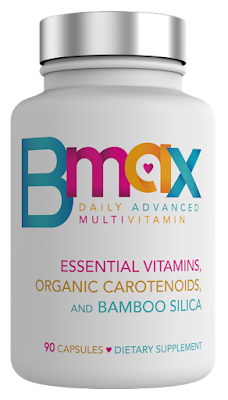Vitamin D health benefits
Vitamin D is critical for proper bone health. It promotes calcium absorption and helps prevent osteoporosis.
Additional roles of vitamin D include reduction of inflammation, neuro muscular support, and possibly warding off depression.
Some studies posit that vitamin D can help with weight loss, and reduction in risk for certain diseases, but there isn't a large body of evidence yet.
Vitamin D and immunity
The immune system requires vitamin D to fight off invading bacteria and viruses.
In a randomized trial conducted on over 300 Japanese school children over a 4-month winter flu season, those that received a vitamin D supplement had a 40 percent lower rate in certain types of flu, compared to a control group. However, rates for other types of flu were similar.
Other studies have shown that weekly vitamin D supplements lower the risk of acute respiratory infections.
Vitamin D and Covid-19
Research is ongoing, but definitive conclusions have yet to be published, as this is a new disease. That said, it makes sense to check your vitamin D levels and increase them if they are low.
Based on existing information, some governments are taking action. In the UK, for example, clinically vulnerable people are now receiving a FREE 4-month supply of daily vitamin D supplements.
People at risk for lower levels of vitamin D
- post-menopausal women
- people who had gastric bypass procedures,
- individuals who have celiac and other nutrient absorption related conditions
- dark skinned people whose body is more effective at blocking sunshine
If you are in a risk group, consult with a health professional and consider get tested for vitamin D levels.
Foods with naturally occurring vitamin D
Unfortunately, there are very few foods with naturally occurring vitamin D. They include:
- cod liver oil (1 tablespoon has 34 mcg, 220% of the daily value)
- swordfish (3 oz serving, 14 mcg, 94% DV)
- salmon (3 oz, 11 mcg, 75% DV)
- tuna (canned or fresh) (3 oz, 4 mcg, 25% DV)
- sardines (2 pieces, 1 mcg, 7% DV)
- beef liver (3 oz, 1 mcg, 7% DV)
- eggs, mostly the yolk (1 mcg, 7% DV)
Foods that are fortified with vitamin D
In the US, public health officials have mandated dairy milk be fortified with vitamin D. This historical decision virtually eliminated rickets, a disease that many children suffered from.
- Dairy milk - 25% DV
- Dairy-free milk - varies, check the label
- Orange juice - varies, but juice is high in sugar so may not be worth it.
- Breakfast cereal - some manufacturers add vitamin D, but again, if the cereal is high in sugar, seek nutrients elsewhere.
Vitamin D supplements
If you can't get sufficient amounts of vitamin D from sunshine or food, the supplement industry will be more than happy to sell you some. It is available as D2 or D3.
Vitamin D is actually a group of compounds. The most common are vitamin D3 (cholecalciferol), and vitamin D2 (ergocalciferol).
Vitamin D3 is from animal sources, while vitamin D2 is derived from yeast and fungi and as such can be consumed by vegans and vegetarians.
Bottom Line
Vitamin D is a critical component of bone health. Vitamin D may be beneficial to the immune system.
If you've never checked your blood vitamin D levels, do it. In any case, there are multiple food sources as well as supplements to choose from.
Our BMAX multivitamin has vitamin D in it. Suggested doseage is 1 to 3 per day.
I personally take 2 BMAX just before breakfast. I have my D levels
checked and since taking the BMAX my D levels are where they should be.
Get started on BMAX today. Get it at.
https://www.herbals-unlimited.com/b-max.htm
 |
| B Max Ingredients List |
 |
| Nutrisail BMax MultiVitamin |
- Cranney et al - Effectiveness and safety of vitamin D in relation to bone health - NIH, 2007
- Institute of Medicine, Food and Nutrition Board. Dietary Reference Intakes for Calcium and Vitamin D. Washington, DC: National Academy Press, 2010.
- Clarke et al - Vitamin D Insufficiency - Mayo Clinic Proceedings, 2011
- Giovannucci, et al - Epidemic influenza and vitamin D - Epidemiology & Infection, 2006
